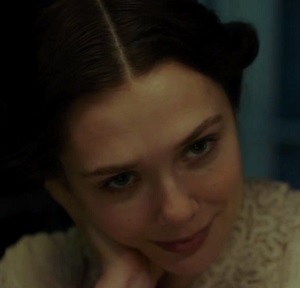An odd film, in that the entire first half is completely flat but the second is the polar opposite – ultimately transforming itself into a reasonably soulful and entertaining sci-fi adventure. Certainly, if you’re going to tell a tale of two halves then that is the right order to do it in. Guardians is the latest from Marvel Studios and the first outing on the big screen for some of their lesser known superheroes, namely ‘Star-Lord’ (Chris Pratt), Gamora (Zoe Saldana), Rocket (Bradley Cooper), Drax (Dave Bautista) and Root (Vin Diesel), lesser known, perhaps, because their escapades are set in our current time frame but in another galaxy, allowing access to previous story threads in the Marvel film universe involving Thanos and Benicio Del Toro’s ‘The Collector’, both seen in post credit sequences at the end of ‘Avengers Assemble’ (12) and ‘Thor : The Dark World‘ respectively.
Star-Lord (Peter Quill is his somewhat less egotistical name) was abducted from Earth when he was a kid in the eighties, and he still religiously listens to the mixed tape he had with him at the time whilst conducting his present occupation of scavenging rare goods and then flogging them. One day, he is sent to collect an orb which will see a bounty put on his head and Gamora, daughter of Thanos, sent to retrieve the item from him by force, just as bounty hunters Rocket (a raccoon genetically modified to be really sarcastic) and Root (a tree) also come across their prey, all resulting in them being lumped together by the authorities in prison where they can begin to bond with one another and meet the final cog in their increasingly unlikely ass kicking outfit – Drax, who interprets everything literally and is built like the proverbial brick shit house.
This protracted and other worldly backstory is the film’s major setback, and a lot of it fails initially. It’s not really until they form a group and meet The Collector, also linking everything to what fans of the previous films will be familiar with, that it starts to cohere together and become more interesting. Thankfully, this still leaves a lot of time for things to pick up, as the action becomes more lively, the jokes funnier, and the characters more, ahem, root worthy, with a suitably dramatic finale and wonderfully villainous performances from Lee Pace and the demoniacally sultry Karen Gillan (who committed to having all of her hair shaved off for the role).
It’s directed by James Gunn (see the wonderful ‘Super’ 2010), who also co-wrote the screenplay alongside Nicole Perlman and, all in all, it is a worthy addition to the Marvel canon, but for a while it looked like it was heading for disaster. As usual, there are two new post credit scenes, but unusually the last one has a reference that most of the audience didn’t appreciate – it relates to a certain old superhero film that was so badly received it ended the careers of many of the people involved with it, Tim Robbins being one of the few to rise from its ashes (The Red Dragon, incidentally, passed him on the street in Edinburgh a few months ago – he didn’t recognise me), although I kind of remember it as funny, maybe for the wrong reasons, but I would love it if Gunn were to integrate it into the sequel to this, which has already been greenlit by the studios with him to take on the reins once more …



